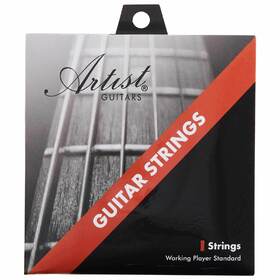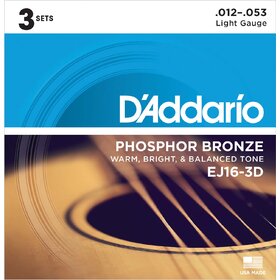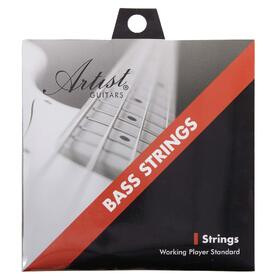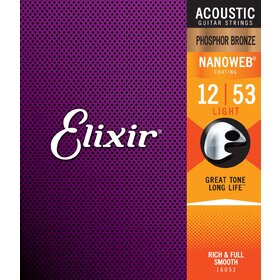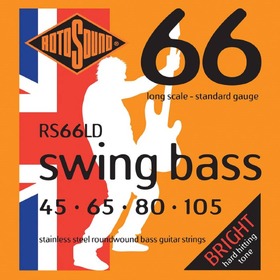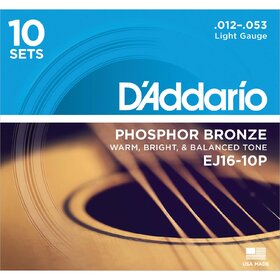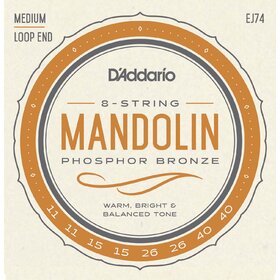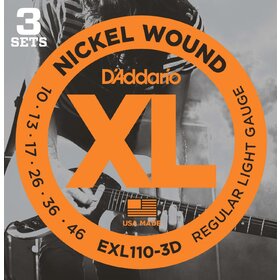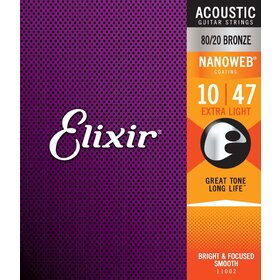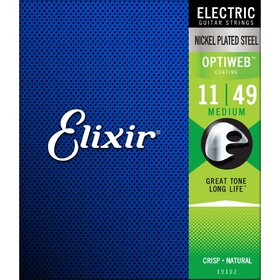Guitar Strings
Guitar Strings
Strings come in a lot of different varieties. Let's talk about what the numbers on string gauges mean.
So, strings are rated in the thickness of the string. For example, a set of 9-42 electric strings are thinner than a set of 11-52 electric strings. The result of thinner strings is that the strings are easier to bend, and are overall, easier to play. Thicker strings are better for drop tunings but are usually a bit harder to play.
String thickness also affects the tone of the instrument, thicker strings usually result in more bass and thinner results in more treble.
The most important thing with strings is how it feels to you to play. It's a good idea to try a few different types of strings, and see which one plays the best for you. For beginners, a good starting point is 9-42’s for electric guitars, 10-47’s for acoustic steel strings.
Unlike steel string instruments, classical nylon string guitar strings are rated by their tension level. Low, normal, and high tension. Usually, it's best just to stick to normal tension. Low tension is good for easier fretting but produces less volume from the instrument, and high tension is the much better volume but much harder fretting.














